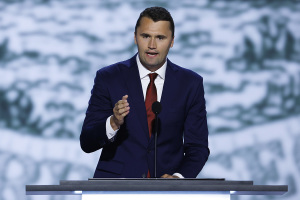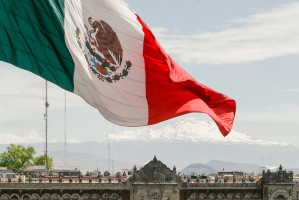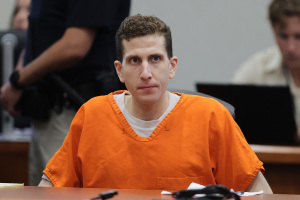What global churches did when their governments said they couldn’t have large gatherings
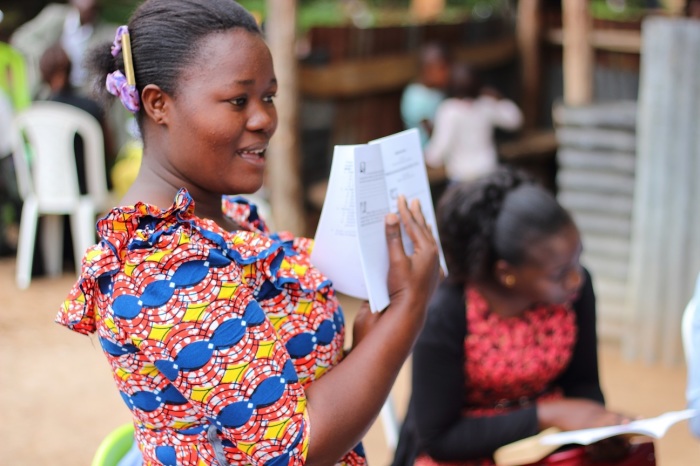
The evidence is anecdotal, but the lesson from the reaction of some of the world’s poorest Christians to hunger and government restrictions on large gatherings amid the coronavirus pandemic is a powerful one for their American counterparts, says Janice Rosser Allen, CEO and president of the global church planting ministry ICM.
The ministry, started in 1986 by Allen’s father, Dois Rosser Jr., is described by some as the mission world’s best-kept secret because in the more than three decades it has existed, ICM has helped to plant and build more than 35,000 churches in 100 nations, creating a safe space for the faithful who sometimes have to worship in a hostile cultural climate.
While the majority of American churches shifted to convenient online worship services, and a vocal minority flouted social distancing protocols and challenged public health restrictions on large church gatherings in the name of religious freedom when the pandemic hit in March, ICM-backed congregations responded differently.
“It’s been interesting to see the response of churches in America when we were told you can’t get together in groups of greater than 25. ... Many, many churches as we all know closed their doors,” Allen recalled in a recent interview with The Christian Post.
“What we began seeing with a number of our partners is that if they were told that same thing, ‘You can’t have more than 10 gather,’ they’ll say we’ll just have the church open 24 hours seven days a week so we’ll have groups of 10 come through throughout the days and nights,” Allen said. “It wasn’t an option for them to not gather. And the passion that these believers have for their faith where they know [when] they decide to become a follower of Jesus Christ that they are putting their lives on the line. They’re putting their families on the line, their jobs on the line. It’s [like] that old hymn, ‘I have decided to follow Jesus, no turning back, no turning back.’”
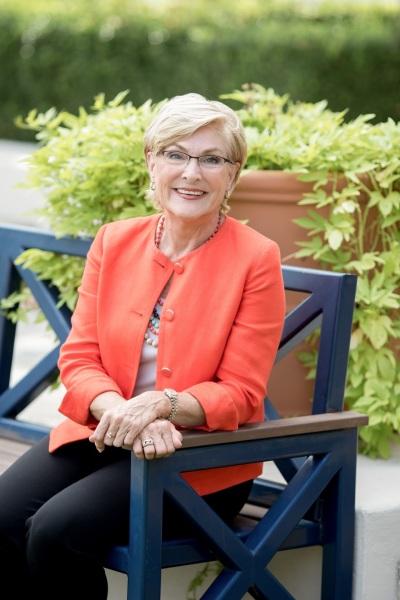
Unlike the American Church, which has faced few obstacles to gathering beyond the pandemic restrictions, Allen, who took over ICM from her father in 2006 after a career in nursing and the passing of her husband, said her ministry has been investing in helping indigenous congregations build their own churches in the developing world because sometimes that’s the only way their government would allow them to fellowship.
“In some nations where we work, it’s been interesting that the government may have put laws into place that forbid congregations to gather unless they have a building. And so in those instances it was a strategy of the government to try and keep Christianity to minimal growth because they just figured these poor congregations could never afford to build a church,” Allen said.
“I think God has a sense of humor because they thought that would be the restriction that would keep the church from growing and then all of a sudden ICM helps provide something they never ever thought would be possible,” the mother of three added. “In some other places, we find that, particularly where Christianity is in the minority position, it sometimes is seen that it’s a Western religion, so it's discounted. When a congregation that’s an indigenous congregation is able to build their own church, it gives a legitimacy to Christianity that did not exist before.”
Building sustainable churches
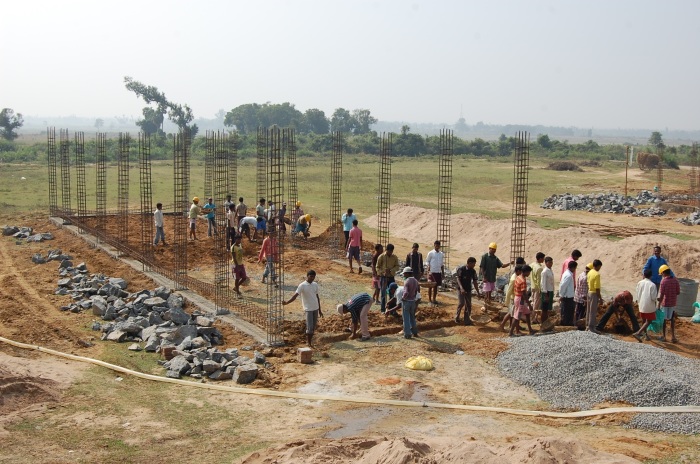
ICM’s church planting model focuses on identifying strong indigenous ministries in the developing world and then partnering with them to help create self-sufficient churches, which they support with religious education through a variety of electronic technologies and social media.
“I’ve always said over the years that ICM basically is trying to work ourselves out of a job because we want to empower the indigenous church to be self-sustaining. I never thought we were going to have a chance to test that model in every single nation where we are working at the same time, but to see the strength of the indigenous ministries and the indigenous leaders to continue the work seamlessly even when we couldn’t be traveling to oversee the work has really been extraordinary,” Allen said.
She said that about 850 churches were under construction when the pandemic hit in March and she fully expected the work to come to a grinding halt. But the churches never stopped working.
“I fully expected that we were going to see all kinds of slowdown in the work because, just like in the United States, they were experiencing lockdowns in most of the countries. ... That meant that if they were told by their government that they couldn’t have more than four or five people gather at a time, then the construction wouldn’t continue.
“They would just have four, five people working on the construction. They’d work a shift and then they’d have another shift come in and then another shift come in. So the work, really in terms of the construction side, did not slow down, which has been remarkable,” Allen noted.
Many of the locals in the international locations also did not have the luxury of remote work from relatively comfortable homes. They were also busy working to keep many in their communities from starving.
“We have wonderful places that we can shelter at home. In all these nations where ICM works, their alternative is a mud hut and no food if they had to shelter at home. So in those instances, the church, and I’m talking about not just the physical building but the body of believers, have been the sustenance, literally and figuratively, in every way for these rural communities during this pandemic,” she said.
“We began to see nations where people live hand-to-mouth, day to day. So they would go out, earn a little bit that day to buy their food that day. So it’s a day-to-day existence. And when they couldn’t get out because of lockdown, they couldn’t get out to work and they were starving to death.
"A famine was as serious a concern in many of these nations as COVID hit. So the church became in many of the nations where ICM works ... the provider of food. The people would put on their masks, the congregation members would put on their masks and travel around in the villages and actually deliver food so people wouldn’t starve to death,” said Allen.
Hope Centers
In the last 10 years, the ministry also began investing in a project called Hope Centers to assist at-risk children.
“I think one of the things that I began to see when I stepped into the leadership role that I currently have is that in so many of these very poor areas, children often suffer the most. And so many instances where we work, the average age of the population might be 20 years old,” Allen said.
Many of the young have ended up in sex trafficking, become pregnant as teenagers or get involved with drugs. Even though the churches didn’t have enough resources to help these at-risk youth, Allen said the churches still dedicated significant time and resources to help.
“We just began saying we need to be able to help these churches do ministry to children because they’re doing it seven days a week. They are having these kids come to the church so they’re in a safe place so they don’t have 8-year-olds being raped at home by gang members while the single mother is handling a stall at the market. And that sort of stuff does go on all the time. So we began to say, if we can give a building beside the church that can have a kitchen and some bathrooms and some classrooms, the congregation can be more effective in doing the children’s ministry that they’re already doing,” she said.
And the Hope Centers, she said, are already changing the narrative.
Remembering the global church
The ICM CEO said at her organization’s recent virtual Christmas party, she reminded staff that through the first 17 verses of Matthew that Jesus’ genealogy was “scandalous” because it was full of sinful, broken people.
“What a reminder that Jesus Christ came for everyone, not just the Church that’s in North America. In fact, the Church in other parts of the world is growing so much more rapidly than what we’re seeing in America,” she said.
“God has called us all. If there are any within the Body of Christ that are needy and hurting and suffering, we should all be feeling that pain. So that is one thing I believe is the heartbeat of ICM — that we are trying to uplift our brothers and sisters in other parts of the world.”
Believers who would like to support the work of ICM can do so in a number of ways such as through a financial gift or prayers.
“We believe that is the first and foremost thing that we need to be doing, [to] be praying for the churches we work with, the partners we work with, because we are very aware that it is spiritual warfare. In many of the places we are working, it is extremely difficult to be a believer. And it is so important that we be covering them in prayer,” Allen said.

















